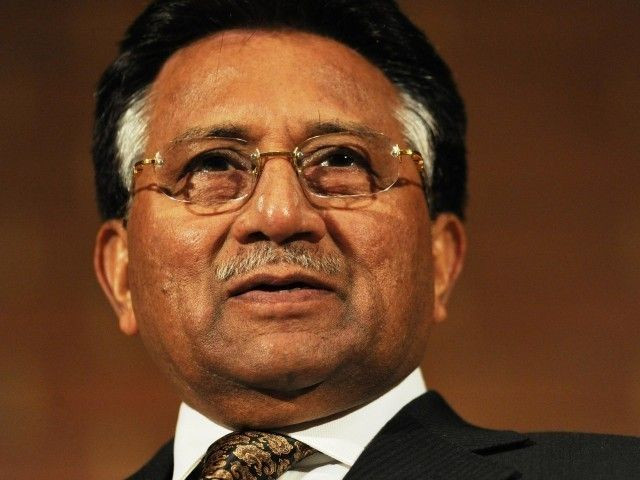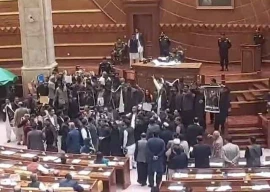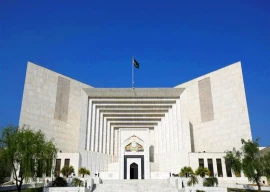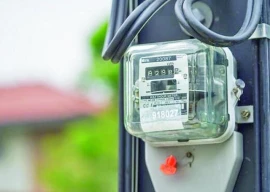
When the case was taken up, the counsel for the former military dictator, Akhtar Shah, filed the application challenging cognisance of the court on grounds that the act does not constitute terrorism charges and it should be sent back to a district court.
The ATC-II judge, Sohail Ikram, however, remarked that legal provisions should be submitted to support the application, especially when the suspect had not been appearing before the court.
In his arguments, Shah said that section 7 of the Anti-Terrorism Act (ATA), 1997, was inserted in the case on the orders of the Islamabad High Court (IHC) but the charges were not proved during the course of the investigation.
He added that no evidence was produced in connection with the Section 7 of the ATA by the investigators and the prosecution.
While referring to an order of the IHC, Shah said, a division bench comprising Justice Noorul Haq Qureshi and Justice Riaz Ahmed Khan had held that lawyers’ allegations could not be considered as evidence.
Subsequently, he said, the bench had granted bail to Musharraf in 2013.
Moreover, Shah argued that the previous cognisance was not “proper” and the court should take “fresh cognizance” in the case.
He relied upon the section 193 (cognizance of offences by Courts of Sessions) of the Criminal Procedure Code. “Without prejudice to anything, the entire case is false,” he said, while talking to The Express Tribune.
The judges’ detention case was registered by the Secretariat Police Station on August 11, 2009, on the complaint of Advocate Chaudhry Mohammad Aslam Ghumman who had sought legal proceedings against the former military ruler for confining 60 judges of the superior courts for over five months at their homes and restraining them from administering justice.
The judges, including former chief justice Iftikhar Muhammad Chaudhry, were detained after proclamation of a state of emergency in the country.
Later in 2013, it was reported that Ghumman had withdrawn his complaint against Musharraf saying neither he would appear before the court nor press for prosecution.
He had left it up to the court to decide the fate of the case.
The legal experts had expressed that Ghumman could not withdraw the complaint because the FIR included sections of the ATA and only the state could withdraw the case.
The Special Public Prosecutor (SPP), Aamir Nadeem Tabish, opposed the application arguing that Musharraf submitted a new application at almost every hearing and he had not been appearing before the court for one reason or another.
Following the arguments, while dismissing the application for temporary exemption, the court directed Shah to present legal provisions in support of the application challenging the trial by the ATC. He would further argue on September 19.
The non-bailable warrants of arrest issued against Musharraf in the case are still in field.
Musharraf, who is facing a number of cases including Abdul Rasheed Ghazi murder case, Benazir Bhutto murder case and high treason case, — left for Dubai on March 18, hours after the interior ministry issued a notification to remove his name from the exit control list (ECL).
Published in The Express Tribune, July 13th, 2016.


















COMMENTS
Comments are moderated and generally will be posted if they are on-topic and not abusive.
For more information, please see our Comments FAQ